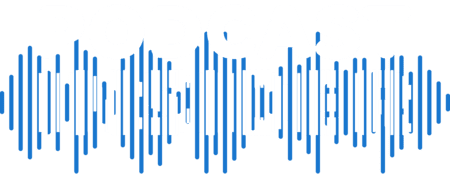What is a podcast trademark?
As a podcaster you have spent hours developing your show, finding topics, locating people to interview, writing show notes, putting together intros and outros, recording and editing. Your show is uniquely yours with topics that are dear to you and the show is produced with a style your listeners love. Your potential listeners are drawn to listen to your show through you show’s title, logos and artwork. Your current listeners identify with your show through your show’s title, logo and artwork. This is your branding and your podcast trademark.
Why might you need a podcast trademark?
What if another podcaster decides to create a show and brands his new show with a show name and logo that is similar to your show’s title and logo? The answer is that new listeners may choose the new show over yours, and your current listeners may become confused not knowing which show is yours and which show is the new show.
This is the exact scenario that our podcast trademark laws are designed to prevent. Our federal and state trademark laws are designed to allow you to have your unique brand that cannot be copied if those copies will confuse, cause mistakes or deceive when used in commerce.
How do you obtain a podcast trademark?
You obtain a podcast trademark when you first use your branding in commerce. When you pick a show name and logo and you publish a podcast using that show name and logo you have created your trademark. Of course your show name and logo must be unique and not a copy or something similar to another podcaster’s show name and logo.
Contrary to what many believe, it is not necessary to register your trademark with the United States Patent and Trademark Office (USPTO) to have a trademark. However, registering your trademark with the USPTO makes it much easier to defend your podcast trademark should someone else copy or use a similar mark to identify their podcast. Registering your trademark gives you the presumption that it is unique to your particular marketplace and that you were the first to use it in commerce.
I have successfully fended off trademark encroachers by simply sending the encroacher a cease and desist letter containing our trademark’s USPTO registration number. I’m sure defending the trademark would not have been as easy if the trademark was not registered and I was simply claiming a common law trademark. Unfortunately if your cease and desist letter does not work then you must decide if you have the resources to file a trademark infringement claim in the United States District Court.
You may want to consider registering your trademark if you are growing your audience with hard work and scarce resources. Why let someone confuse and dilute your audience by branding their show with something similar to your branding?
 -Attorney Barry Kantz is General Counsel and CFO of RawVoice and Blubrry. He can be found on Twitter @kantzb.
-Attorney Barry Kantz is General Counsel and CFO of RawVoice and Blubrry. He can be found on Twitter @kantzb.
This post is part of a series on copyright law as it pertains to podcasters. Check out Barry’s posts on using music for your podcast without breaking copyright law, determining what “fair use” means when it comes to podcasting, and DMCA takedown and shakedown notices.





